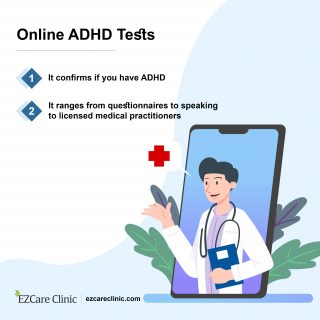The three letters ADHD (attention deficit hyperactivity disorder) represent a complicated reality that only those who are affected can fully understand. Many face difficult challenges on their path to receiving an ADHD diagnosis, which can make the process seem just as overwhelming as dealing with the condition’s symptoms. This post tries to clarify the customary difficulties faced on this journey and highlight how the availability of ADHD Test Online screening is changing the field by facilitating diagnosis and subsequent care more easily and quickly than in the past.
Understanding the Stigma
Misconceptions about ADHD abound, deeply entrenched in misinformation and a profound lack of understanding. Among these, the myth that ADHD is simply a consequence of inadequate discipline or an entirely “fabricated” condition is particularly damaging. Such misconceptions not only perpetuate stigma but also significantly hinder those affected from pursuing the necessary treatment. Moreover, this stigma is pervasive, affecting perceptions not just among the general public but also within healthcare systems, thereby complicating and obstructing the diagnostic journey for individuals who do seek assistance.
The Emergence of Online ADHD Tests
The anonymity and accessibility of online ADHD tests provide a crucial alternative to the traditional diagnostic route. These tests are the first stepping stone for many individuals who may otherwise have not sought any form of validation for their concerns due to various stigmas.
- Advantages of Online Tests
Their availability 24/7 without appointment, cost, or long waiting times, is pivotal in reducing barriers to diagnosis. Parents and adults questioning ADHD find online tools respectful of their time and privacy, serving as a starting point.
- Reducing Stigma
By offering a private space to explore the possibility of ADHD without the need for a face-to-face appointment, these tests provide individuals a chance to initiate the conversation with themselves and then with professionals, unhampered by the fear of judgment.
Validity and Reliability of Online Tests
While the benefits are clear, the question of accuracy remains. Are these tests just a part of the problem? Qualified professionals should always confirm results from reputable online ADHD tests, which utilize well-established assessment tools. Diagnosis should involve a comprehensive evaluation process, not relying solely on an online test for accuracy.
- Choosing Reliable Platforms
The key lies in selecting online resources that are transparent about their methodology and intended purpose. Furthermore, trustworthy platforms clearly state that their tests are a preliminary screening tool, not a definitive diagnosis.
Empowering Individuals Through Knowledge
The knowledge gained from an online ADHD test can be liberating. Initially, it offers a sense of direction and validation, empowering individuals to take an active role in their mental health journey. Subsequently, the insight gained prompts many to seek professional advice, armed with a clearer understanding of their challenges. This progression from self-awareness to proactive engagement in seeking help is a critical step towards managing ADHD effectively.
- Professional Support
The ultimate goal of the online test is to nudge individuals toward seeking the comprehensive evaluation they deserve. Consequently, the interaction with a professional is where true empowerment begins, leading to tailored treatment and support plans. This step is pivotal in managing ADHD, opening doors to personalized strategies for improved well-being and functionality. Implementing strategies for mental health support, such as therapy sessions, lifestyle adjustments, and medication management, can significantly enhance the quality of life for individuals dealing with ADHD and other mental health challenges.
Challenging Stigma Through Discussion and Education
Open conversation and education are our most powerful tools against stigma. Moreover, by sharing stories of struggle and success, and by spreading knowledge through online platforms, we can alter the narrative around ADHD diagnosis and treatment.
- Successful Initiatives
Successful online initiatives make real strides in challenging stigma. Future mental health care will be more inclusive if accurate diagnoses and efficient treatments—which begin with online tests—are implemented.
For visitors seeking a deeper understanding or further resources, visit here for related post, the section offers curated articles and testimonies. Whether seeking personal stories, professional insights, or community support, click here to access a comprehensive collection for information and inspiration.
Conclusion
In summary, we can get past the stigma associated with ADHD even though it continues to be a major obstacle.The rise of online ADHD tests marks a transformative shift in mental health, providing hope and support to affected individuals. These technological aids serve as benchmarks, illuminating a path toward improved understanding, acceptance, and assistance for individuals with ADHD. Consequently, we are moving towards a future where ADHD challenges are met with empathy, practical solutions, creativity, and heightened awareness.

